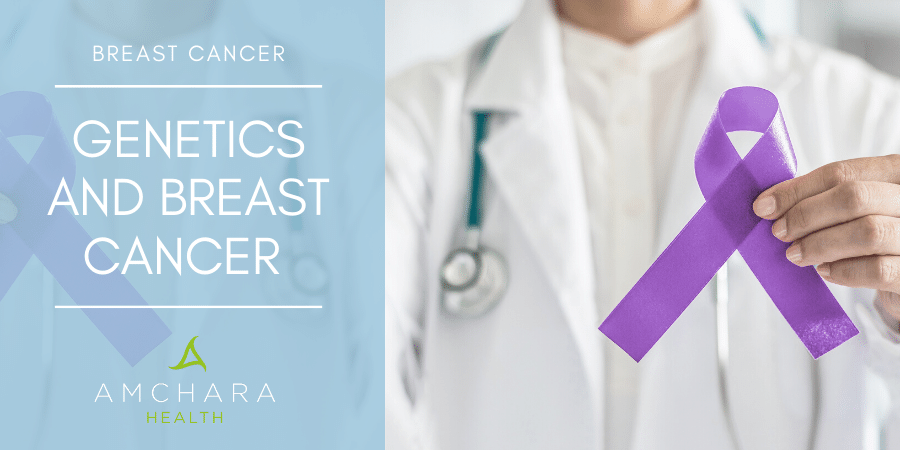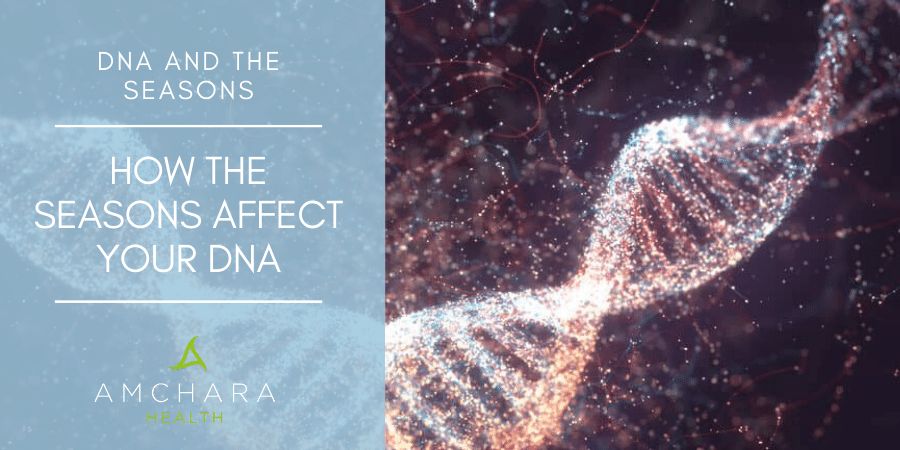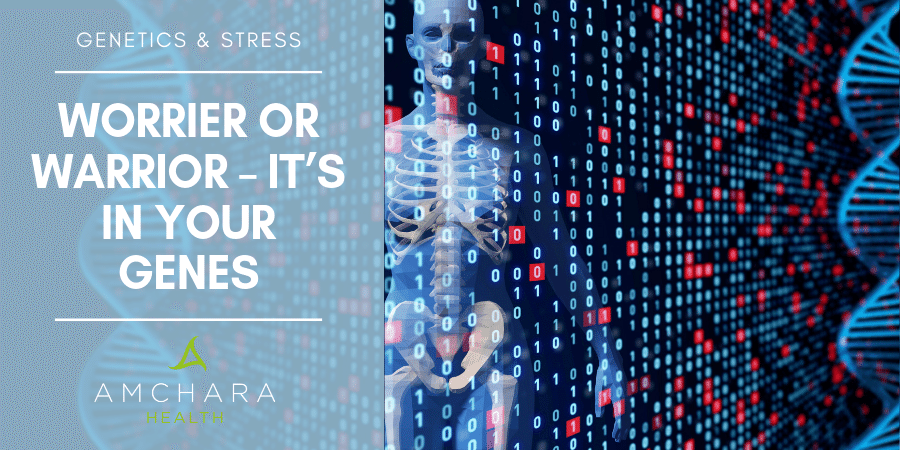Have you ever noticed how this week a scientific study will demonstrate how one food is beneficial when next week another study will demonstrate the opposite?
In this article, were going to explain this by taking a closer look at Nutrigenetics and Nutrigenomics, two exciting areas of nutritional research you may not yet have come across.
Despite the plethora of books promoting this or that diet because it was beneficial for the author, one-size fits all diets don’t work for everyone.
In fact, two individuals of a similar age, stature and activity levels will always react differently to exactly the same diet.
It’s hardly surprising, really.
We’re not carbon copies of one another.
We are unique.
This is where genetics come in.
Want to know more?
Book Your Free Genetics Consultation Today
Table of Content:
Dynamic DNA
All the information needed to build and maintain us is contained in our DNA.
Genetics is the study of how DNA is passed from one generation to another. It looks at how and why variations happen and how these variations are expressed.
You may have heard of epigenetics.
This is the study of heritable changes in our gene expression, which is how our genes direct the functioning of our cells.
From this we can see that genes and their effects on our body are not stable throughout our life.
First, let’s have a little look at the chemistry of our genes.
DNA is made up of two strands of nucleic acid chains.
These are comprised of sequences of four different molecules called nucleotides linked together in countless different sequences like words in a sentence.
The arrangement of the nucleotides within the nucleic acid determines every aspect of our functioning.
This is called our DNA sequencing.
The complex nucleic acid molecule contains the code that ensures the accurate ordering of the twenty amino acids which form the constituents of the proteins making up our cells.
The human genome
Almost twenty years ago, scientists set out to discover our entire genetic code in a research project known as the human genome project. (BBC)
Every single of the 20,000 or so genes in the human body was mapped.
Your genotype is your genetic identity, in other words all the genes you inherit which determine your physical characteristics.
The project discovered millions of single nucleotide polymorphisms (SNPs) which are known as SNIPS and are found in at least 1% of us.
These are the most common type of genetic variation or mutation.
Each SNIP represents a single alteration in a nucleotide in a specific position within the human genome.
SNIPS underlie variations in our susceptibility to diseases.
Since the project was completed in 2003, a huge amount of research has been devoted to exploring how external factors like nutrition can influence genes and how our genetic code can influence our response to the food we eat.
Bring on nutrigenetics and nutrigenomics, the new buzzwords in health and nutrition.
Nutrigenetics
What this research found was that your genes can determine how you handle food. In other words, food may impact positively or negatively on a person’s health depending on their genes.
Since we’re all unique, it shouldn’t come as a surprise that we all respond in different ways to nutrients in our diet.
Our individual DNA can affect the way we absorb nutrients, as well as the manner in which we transport and metabolise them.
Nutrigenetics can be described as the ‘science of the effect of generic variation on dietary responses’.
It aims to discover more about how people respond to nutrients depending on their genetic variation.
Often these inherited genetic differences produce easily noticeable effects.
Some people have an inherited tendency to be lactose intolerant, because their body does not produce the enzyme needed to break it down.
This means they don’t do well on dairy products. Genetic variations can determine how well you can tolerate caffeine.
One of the first genetic mutations to be identified was Phenylketonuria.
This is rare syndrome caused by a mutation in the gene that encodes for the enzyme needed to break down the amino acid phenylalanine.
Sufferers need to follow a low protein diet and especially avoid foods containing high levels of phenylalanine such as soya and cheese.
Our MTHFR gene provides instructions to the body to produce an enzyme which converts the folic acid in our diet to a form the body can utilise.
Mutations of this gene are very common, and they affect our ability to benefit from folic acid.
However, with all the myriad of different possible combinations in our genetic code, many of the effects of mutations are subtle and not always obvious.
Each nutrient needs several enzymes to be metabolised by our bodies, and each of these enzymes are encoded by a gene which can have multiple variants.
The MTHFR gene, for example, can have over fifty variants, each of which has a slightly different effect.
Nutrigenomics
Nutrigenomics, conversely, is defined as the role of nutrients in gene expression.
We’ve already mentioned, but it’s not so well known, that our genes are not constant throughout our lives.
Certain chemicals including nutrients are capable of affecting our gene structure and gene expression.
Chemicals in foods may affect whether genes are switched on or off, as well as disrupt gene sequence.
The role of the diet in influencing genes has been dubbed the ‘dietary signature.’
It was first observed in populations whose traditional diets altered dramatically when processed foods more associated with western diets first became available.
Researchers noticed drastic increases in chronic disease like Type II diabetes and cardiovascular disease, not previously suffered from to any great extent.
Accompanying changes in gene expression in these populations were also found.
It even appears that genetic changes not inherited from previous generations but acquired during our lives can be passed on to future generations.
During in pregnancy, for example, our mother’s diet can affect our genes and even make us susceptible to develop diseases decades later.
This dual consideration of the genes you were born with and how dietary environment acts on our genes is the basis of nutrigenetics and nutrigenomics.
Our genes and chronic illness
Let’s have a look at nutrigenetics and nutrigenomics in relation to chronic illness.
In the case of cancer, diet can be a mixture of protective, carcinogenic and mutagenic agents.
A mutagen is any substance that can change our genetic material above and beyond the level that might normally be expected naturally.
Differences in DNA, known as genetic polymorphisms, can change the function of enzymes or protein expression.
They can even affect our hormone balance and modify a person’s risk of developing cancer.
Genetic factors such as DNA instability and gene alterations can be affected by nutrition.
Some people are more genetically susceptible to carcinogenic agents in the diet than others.
For example, substances called amines found in processed and overcooked meat are connected with an increased risk of colorectal cancer.
This is particularly so in those with a certain genetic mutation.
Nitrosamines from fried food are connected with stomach cancer.
Studies have shown that the risk can be as much as three times higher when a close family member has also been diagnosed with the disease.
The above can work in reverse, too – dietary components observed to reduce the risk of cancers may be more effective in people with specific genetic makeups.
Cruciferous vegetables have been seen in studies to reduce cancer risk, particularly for lung, colon, stomach and breast cancer.
The anti-cancer agents in these vegetables appear to exert their effects via enzymes that metabolise carcinogens.
These carcinogens can then cause gene mutation through complicated pathways.
However, cruciferous vegetables may be more protective in some but not others.
Study on these relationships is as yet in its early stages.
In the future, nutrigenetics may in the future provide explanations for the often contradictory results seen in connection with diet and cancer risk.
Personalised nutrition
So, how can nutrigenetics and nutrigenomics help to support our health?
By understanding a person’s genotype, a practitioner can construct a completely personalised diet according to their genetic code.
Individual diet plans and health advice can be formulated based on genetic makeup once the practitioner knows the likelihood of the body reacting in a particular way to different nutrients.
This way your diet can be fine-tuned, with a personalised nutritional approach aligned to your own genes and how they are communicating with your body systems.
Genetic testing can also forewarn us of the potential of common diseases.
Testing can map our gene mutations or SNIPS.
We already know that we can inherit genetics predispositions to specific health conditions such as breast cancer.
If testing reveals that a person is likely to experience specific health problems, a tailored diet can reduce this risk.
Exciting new research on the genetic risk of developing Alzheimer’s disease is leading to the investigation of specific diets to lessen the likelihood of those carrying this genetic coding developing the disease in later life.
You’re probably familiar with RDAs, or recommended daily intakes, which are blanket recommendations given to cover the population as a whole.
They inevitably don’t take into account the needs and responses of genetic subgroups and are best guesses at most.
Amchara’s approach is to take out the guesswork and to personalise your nutrition exactly for you and your specific needs.
We use SNIPS to create the ultimate personalised nutrition programmes.
The acknowledgement that we are all unique and an understanding of how your genotype works to keep your body in balance is the best way to appreciate how nutrition affects your health.
Amchara practitioners embrace this latest knowledge to make your health plan completely personal to you.
Your personalised health programme will look at your genetic makeup using innovative testing methods, as well as determining factors that may be influencing your gene expression.
Find out more: Book Your Free Genetics Health Consultation Today
READ NEXT:
References
-
The role of nutrition related genes and nutrigenetics in understanding the pathogenesis of cancer. Ayman Zaky Elsamanoudy, Moustafa Ahmed Mohamed Neamat-Allah, Fatma Azzahra̕ Hisham Mohammad, Mohammed Hassanien, Hoda Ahmed Nada Journal of Microscopy and Ultrastructure Volume 4, Issue 3, September 2016, Pages 115-122
-
The challenges for molecular nutrition research 1: linking genotype to healthy nutrition.
-
C.M. Williams, J.M. Ordovas, D. Lairon, J. Hesketh, G. Lietz, M. Gibney, et al.
-
Genes Nutr, 3 (2007), pp. 41-49
-
Environmental epigenetics in human health and disease. D.C. Dolinoy, R.L. Jirtle
-
Environ Mol Mutagen, 49 (2008), pp. 4-8
-
Translation of Nutritional Genomics into Nutrition Practice: The Next Step. Chiara Murgia and Melissa M Adamski. Nutrients. 2017 Apr; 9(4): 366
-
Multiple evidence strands suggest that there may be as few as 19 000 human protein-coding genes. Iakes Ezkurdia, David Juan, Jose Manuel Rodriguez, Adam Frankish, Mark Diekhans, Jennifer Harrow, Jesus Vazquez, Alfonso Valencia, and Michael L. Tress Hum Mol Genet. 2014 Nov 15; 23(22): 5866–5878
-
Nicholas P. Lang,1 Mary A. Butler,2 Joyce Massengill, Mary Lawson, R. Craig Stotts, Martin Hauer-Jensen, and Fred F. Kadlubar
-
Rapid Metabolic Phenotypes for Acetyltransferase and Cytochrome P4501A2 and Putative Exposure to Food-borne Heterocyclic Amines Increase the Risk for Colorectal Cancer or Polyps; Nicholas P. Lang,1 Mary A. Butler,2 Joyce Massengill, Mary Lawson, R. Craig Stotts, Martin Hauer-Jensen, and Fred F. Kadlubar; University of Arkansas for Medical Sciences, Arkansas Cancer Research Center and I. L. McClellan Veterans Affairs Medical Center
-
Glutathione transferase null genotype, broccoli, and lower prevalence of colorectal adenomas. Lin HJ, Probst-Hensch NM, Louie AD et al Cancer Epidemiol Biomarkers Prev 1998;7:647–52
-
Diet, Genetics, and Disease: A Focus on the Middle East and North Africa Region. Akl Fahed, Abdul-Karim M El-Hage-Sleiman, Theresa Farhat, Georges Nemer; Journal of nutrition and metabolism · March 2012









